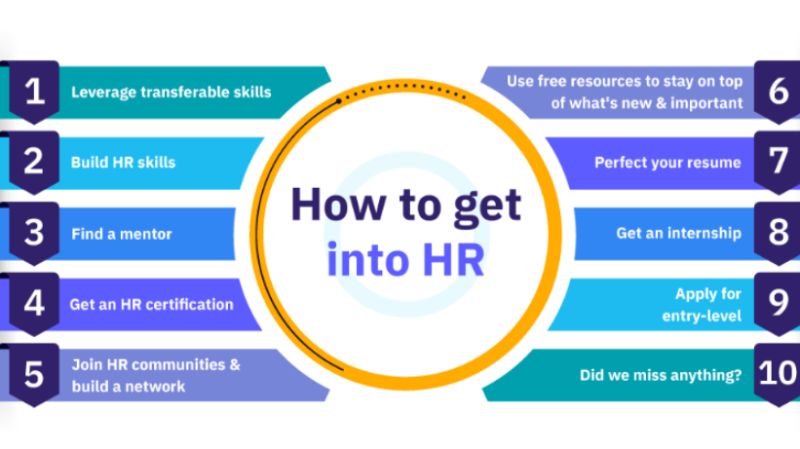
Starting a career in HR without a degree is possible, but it may require dedication, networking, and gaining relevant experience. Here’s a step-by-step guide to help you get started:
✅ Understand the HR Field: Learn about the various roles and responsibilities within HR. Familiarize yourself with key concepts such as recruitment, employee relations, compensation, benefits, and compliance.
✅ Gain Knowledge: While you may not have a degree, you can still educate yourself about HR through online resources, books, and courses. Look for free or affordable online courses, webinars, and workshops offered by reputable institutions or professional organizations in the HR field.
✅ Obtain Relevant Certifications: Consider earning certifications that are recognized in the HR field. Some popular certifications include:
– Professional in Human Resources (PHR)
– Associate Professional in Human Resources (aPHR)
– Society for Human Resource Management Certified Professional (SHRM-CP)
– HR Certification Institute Certified Professional (HRCI-CP)
✅ Gain Experience: Look for entry-level HR positions, such as HR assistant, coordinator, or intern roles. Even if these positions are unpaid or low-paid, they can provide valuable hands-on experience and help you build a network within the industry.
✅ Networking: Attend HR-related events, workshops, and seminars. Join HR-related groups on professional networking sites like LinkedIn. Networking can help you learn about job opportunities, gain insights into the field, and connect with professionals who may be able to offer advice or mentorship.
✅ Internships and Volunteering: Consider interning or volunteering with organizations that need HR support. This can provide practical experience and allow you to demonstrate your skills and commitment to potential employers.
✅ Build Skills: Develop important skills for HR professionals, such as communication, problem-solving, attention to detail, organization, and interpersonal skills. These soft skills are highly valued in HR roles.
✅ Continuous Learning and Development: Stay updated on HR trends, laws, and best practices through ongoing learning and development opportunities. Consider pursuing additional certifications or advanced education as you progress in your career.
Remember that breaking into HR without a degree may require persistence and determination, but with the right skills, certifications, and experience, you can build a successful career in the field.

 Follow
Follow